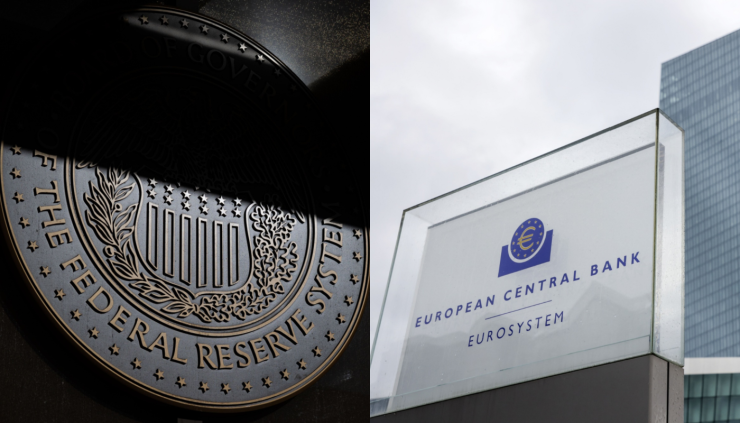Central banks worldwide, including the Federal Reserve, increasingly are competing with private-sector payment systems like Mastercard and Visa. There's rarely, however, a payments need that the private sector can't address, and, in the long term, isn't better suited to address.
Operating payment systems is an unnecessary and harmful distraction for central banks from executing monetary policy, maintaining price stability and avoiding financial crises — missions where their performance has been abysmal. Private payment systems deliver better results, are more innovative, have natural self-correcting market checks, and therefore better serve consumers, businesses and banks. Moreover, central banks also have a fundamental conflict of interest insofar as they regulate those they compete with.
But, for central bankers, developing and running payment systems enhances their prestige and expands their remit and power. And, in many cases, nationalist sentiment drives central banks to operate domestic payment systems.
Central-bank payment systems suppress private-sector innovation. Private-sector banks, payment networks, and fintechs don't want to compete with central banks, which enjoy unlimited resources and, in many cases, regulate them.
Market needs change. Knowledge and technology change what is possible. The private sector is dynamic, experiments, and anticipates and responds to market demand. In contrast, central banks respond to political pressure, fashion and internal imperatives.
Central banks serve and regulate banks. They don't issue credit and debit cards to consumers and traditionally haven't provided payment acceptance to businesses. They're more likely to run interbank rather than retail-payment systems. Nevertheless, those systems still compete with and deter private-sector systems that do or could provide comparable or better value. If a private-sector payment system were inferior, it wouldn't survive.
Central banks are moving into retail and person-to-person payment systems, where the case for their being able to serve needs the private sector can't is especially weak.
The
In 2016 Russia's central bank launched a domestic card payment scheme: Mir. Its motivation was simple. When Russia first invaded Ukraine, Washington cut off U.S.-domiciled payment systems like Mastercard and Visa in Crimea. Russia wanted to insulate itself against payments sanctions when it went to war to conquer all of Ukraine in 2022.
In November 2020 Brazil's central bank launched a retail, P2P, and B2B payment system called Pix, shortly after kneecapping a private-sector competitor: Facebook.
The social media giant has roughly
Brazil's central bank mandated that large payment service providers participate in Pix, a prerogative for building network critical mass and consequently value that no private-sector payment network enjoys.
After Pix had built up momentum, in March 2021 the central bank greenlighted WhatsApp Pay, but only on a limited basis — for P2P, not retail payments.
The Brazilian central bank hails Pix as a success. In less than two years it enrolled 126 million individuals and 11 million businesses, and surpassed the number of debit card transactions. But we can't compare how the market would have developed if instead of blocking Facebook's program and deterring other private-sector competition, light regulation had encouraged them.
In the EU, the European Central Bank's real-time interbank payment system, TIPS, competes with the private-sector bank cooperative EBA Clearing's R1, Visa Direct and Mastercard Send. There wasn't a market failure. Moreover, the ECB regulates its competitor, EBA Clearing.
In the U.S., the Fed's ACH and Fedwire systems compete with the bank cooperative Clearing House's interbank-payment systems. The Clearing House is regulated as a systemically important market utility, and its owner banks are regulated by the Fed.
The U.S. central bank's instant-payment system FedNow is slated to launch this year. It will go head-to-head against TCH's RTP, Visa Direct, Mastercard Send, banks' Zelle, Discover and the payment processors FIS and Fiserv.
The next front of central bank competition with private-sector payment systems will be central bank digital currencies (CBDCs). They're payment systems. They'll compete with private-sector retail, P2P and possibly interbank-payment systems, and stifle innovation in private digital currencies such as stablecoins, which are private electronic banknotes issued by banks and fintechs.
Government operating payment systems aren't necessary and reduce choice, competition, innovation and value for consumers, businesses and banks.







